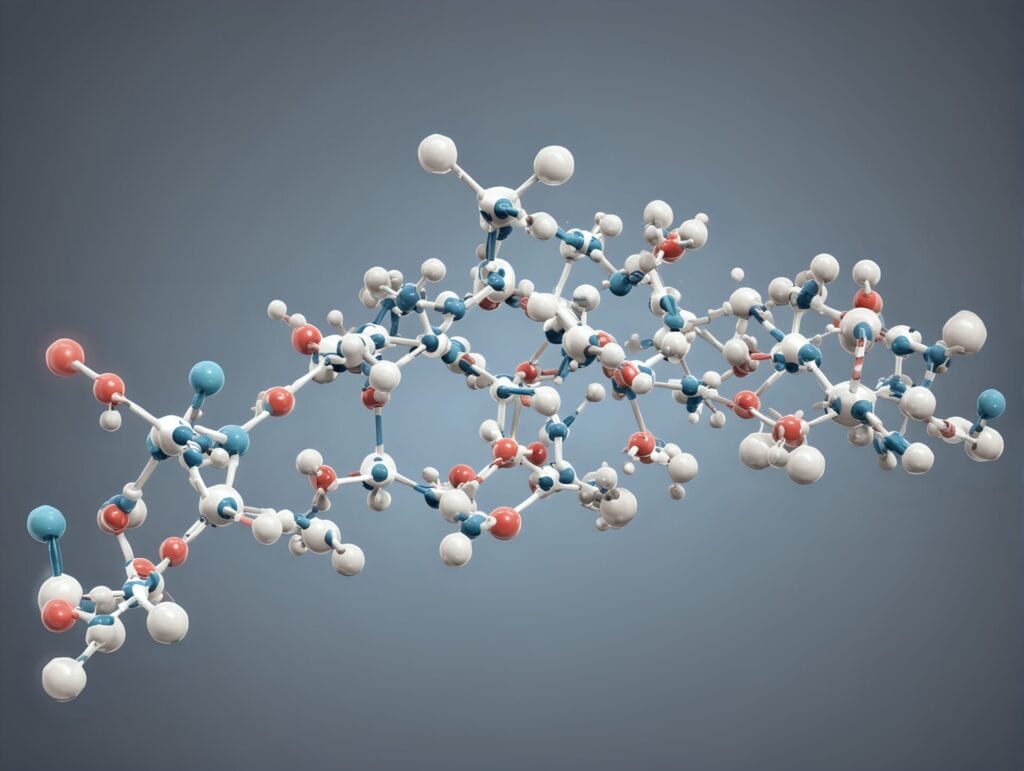Helping Understanding Glutathione Deficiency Risks
In the vast landscape of human health, the microscopic molecules that power life’s fundamental processes often go unnoticed. Yet, these constituents, particularly antioxidants like glutathione (GSH), are unsung heroes in our continuous struggle to maintain wellness. A shortfall in this critical antioxidant can spur systemic health impacts, disrupting the delicate balance required for optimal bodily function.
Oxidative stress management is an integral part of cellular defense, with glutathione at its core. Encountering a deficiency not only signals an alarm for potential disease development but also places a magnifying glass on our body’s capability to fight the repercussions of aging, environmental toxins, and metabolic stress. Awareness and understanding of this condition can pave the way to stronger health strategies and more resilient wellness outcomes.
Essential Role of Glutathione in Cellular Health
Deep within the cellular matrix, GSH operates as a fundamental guardian of cellular health. This peptide, consisting of amino acids — glycine, cysteine, and glutamic acid — is a critical cellular antioxidant whose roles are multifaceted and vital to maintaining the thiol-redox status, which influences numerous cell functions. Essential to the homeostasis of the redox environment, GSH operates at the intersection of protecting cells from oxidative damage and ensuring the smooth functioning of metabolic processes.

The Antioxidant Properties of Glutathione
As a cellular antioxidant, glutathione is a linchpin in the body’s defense mechanism against oxidative stress — a product of daily metabolic reactions and environmental factors. Its ability to neutralize harmful free radicals helps preserve cell integrity and stave off cellular damage that could cascade into various health issues. The preservation of cellular antioxidant capacity is paramount to protect against the disruptions to cell functions and foster immune system health.
Regulation of Cell Proliferation and Apoptosis by Glutathione
Glutathione’s influence extends beyond simple defense; it plays a pivotal role in deciding cellular fate through the intricate processes of proliferation and apoptosis. By affecting caspase activity and the expression and function of Bcl-2, a regulatory protein, glutathione’s presence mitigates the cell’s vulnerability to pathological conditions. These controlling effects on cell growth and cell death intricately tie GSH to the continuous process of tissue renewal and homeostasis.
Glutathione’s Impact on the Immune System
Immune system health is intimately linked with glutathione levels. As a cornerstone of the body’s cellular antioxidant network, GSH is integrally involved in various signaling pathways, assisting in the immune response to pathogens and stress. Adequate GSH levels ensure a robust and responsive immune system by facilitating the regulation of immune cell proliferation, differentiation, and apoptosis. The balance of these intricate immune functions is thereby a reflection of the body’s thiol-redox status, with glutathione at its core.
Consequences of Glutathione Deficiency
Given its critical role in maintaining redox balance and cellular defense mechanisms, the impact of glutathione (GSH) deficiency extends deeply into various aspects of human health. This deficiency can foster a precarious environment within our cells, one susceptible to an onslaught of detrimental processes that can affect total well-being and longevity.
As an integral component in the fight against oxidative stress, a thriving level of GSH within the body’s systems suggests a barricade of protection. Conversely, insufficient GSH creates vulnerability, where oxidative damage can run rife, contributing to cellular wear and tear that may precipitate medical conditions known for their marked degeneration and dysfunction.
Increased Susceptibility to Oxidative Stress
One of the primary repercussions of inadequate GSH levels is a heightened susceptibility to oxidative stress. This condition occurs when there is an imbalance between the production of free radicals and the ability of the body to detoxify their harmful effects through neutralization by antioxidants. The relentless build-up of oxidative damage is a well-established path toward the degradation of cellular components, potentially ushering in serious health conditions, including cancer. The stability of GSH levels is, therefore, essential not only as a preventive measure but also as a therapeutic target.
Link to Neurodegenerative Diseases
The strong association between GSH deficiency and neurological decline illuminates a distressing pathway to neurodegeneration. Diseases such as Parkinson’s and Alzheimer’s are linked with oxidative stress-mediated neuronal damage. The brain, a hub of intense metabolic activity, is, particularly at risk. Vigilance in maintaining GSH levels may thus be integral to combating or perhaps delaying the progression of neurodegenerative diseases, a pursuit where every moment of cognitive preservation is valuable.
Compromised Functioning in Metabolic Pathways
Moreover, GSH inadequacy has ramifications for metabolic health. With GSH embedded in a multitude of metabolic pathways, its scarcity can lead to perturbed metabolic processes. As such, this can serve as both a contributor to and a consequence of metabolic diseases — a double-edged sword where the dwindling of GSH resonates as an echo through the intricate system of the body’s biochemical pathways. The maintenance of adequate GSH levels is consequently pivotal in sustaining metabolic equilibrium and preventing the progression of correlated diseases.
Glutathione Deficiency in the Progression of Human Diseases
The impact of glutathione (GSH) on human health is expansive and complex, implicating its role across various conditions spanning from oxidative stress-related disorders to chronic degenerative diseases. Shifting GSH levels can be a critical determinant in disease development, influencing myriad biological processes essential for maintaining cellular resilience and physiological equilibrium.
Disruptions in GSH homeostasis have consequential ramifications for a spectrum of human diseases, where an intricate balance between protective antioxidative responses and pathological processes is crucial to health outcomes. An exploration into how GSH interacts with these conditions provides valuable insight into both the pathogenesis and potential therapeutic avenues.
The Connection Between GSH Levels and Cancer
At the forefront of concerns relating to GSH deficiency is its established connection to cancer development. Notoriously, cancer cells exploit various biochemical pathways to ensure their survival and proliferation, with alterations in GSH levels serving as a particularly notable adaptation. Low GSH availability often results in diminished cellular antioxidant capacity, thus making cells more susceptible to DNA damage and mutagenesis that may initiate the carcinogenic process. Conversely, some cancers upregulate GSH synthesis to enhance their antioxidant defense, which can lead to resistance against chemotherapy agents, complicating treatment strategies and patient outcomes. This dual nature of GSH in cancer biology underscores its pivotal role in both tumorigenesis and treatment resistance.
Glutathione’s Role in Cardiovascular and Inflammatory Diseases
Beyond oncology, GSH plays a significant role in the prevention and exacerbation of cardiovascular and inflammatory diseases. Oxidative stress and inflammation are hallmark features in the pathophysiology of cardiovascular ailments, where GSH serves as a protective agent against endothelial dysfunction and atherogenesis. GSH’s antioxidative properties are also integral in modulating inflammatory responses, preventing excessive tissue damage from chronic inflammatory states. Consequently, GSH homeostasis is paramount for minimizing inflammation and preserving cardiovascular health, with pathological shifts in GSH signaling contributing to the manifestation and progression of related diseases.
Understanding Glutathione Deficiency Symptoms
Glutathione, a vital antioxidant in the body, prevents cellular damage by countering oxidative stress. However, when glutathione levels fall too low, the body becomes vulnerable to a myriad of health issues, often revealed through various symptoms. Recognizing the signs of GSH deficiency is crucial for early detection and prompt intervention. Understanding these indicators can lead to better management and improved health outcomes.
Neurological Symptoms of Severe GSH Deficiency
Severe GSH deficiency accelerates the vulnerability of the nervous system, contributing to a range of neurological impairments. Individuals may experience seizures, reflecting acute manifestations of oxidative stress affecting neuronal integrity. Additionally, psychomotor retardation and loss of coordination are hallmark symptoms indicating disruption in neurologic function and signaling pathways. These neurological impairments highlight the critical role of glutathione in protecting brain health.
Detecting Hemolytic Anemia Due to GSH Deficiency
Hemolytic anemia is another indicator of potential GSH deficiency, wherein red blood cell destruction occurs at an increased rate. The detection of hemolytic anemia may cascade into further investigations revealing a paucity of glutathione. Surveillance for this symptom, especially when accompanied by 5-oxoprolinuria, can be a key factor in diagnosing and managing GSH deficiency. Understanding how to monitor and address these clinical signs is essential for maintaining overall health and preventing the progression of related diseases.
Glutathione Deficiency and Its Genetic Aspects
Glutathione, the tripeptide tasked with critical antioxidant defenses, possesses a genetic underpinning that influences its levels within the human body. The synthesis of glutathione hinges on the proper functioning of various enzymes, which are, in turn, products of specific genetic instructions. Hence, an anomaly in these genetic blueprints can have a profound impact on glutathione availability and function, and consequently, on the individual’s health.
Genetic mutations that disrupt the normal production and maintenance of glutathione can result in a condition known as glutathione synthetase deficiency. Determining the genetic basis of this deficiency allows for a better understanding of its pathophysiology and rationale for potential treatment strategies.
The Role of GSS Gene Mutations
Central to the genetic backdrop of glutathione synthesis is the GSS gene, which provides the template for glutathione synthetase, an enzyme indispensable for the production of glutathione. GSS gene mutations can lead to compromised glutathione levels, rendering an individual susceptible to oxidative stress and its sequelae. In understanding the role of genetic factors, GSS gene mutations stand out as a key point of investigation.
Inheritance Patterns and Genetic Predisposition
The inheritance of glutathione synthetase deficiency follows an autosomal recessive pattern, where the affliction commonly manifests in individuals who have inherited two defective copies of the gene—one from each parent. This genetic predisposition highlights the autosomal recessive inheritance of the deficiency, which requires acknowledgment and understanding as part of a broader perspective on patient susceptibility and familial health planning.
Glutathione Synthesis and Its Regulation
The synthesis of glutathione (GSH) is a delicate ballet of biochemical interactions, primarily governed by the enzyme regulation within the gamma-glutamyl cycle. As the cornerstone of cellular defense against oxidative damage, meticulous orchestration of GSH synthesis is paramount for sustaining health. Exploration into the mechanics of this process unveils the nuanced relationship between the body’s biochemical capabilities and its overall antioxidant status.
Key Enzymes in the Gamma-Glutamyl Cycle
The gamma-glutamyl cycle is a critical pathway contributing to glutathione synthesis and subsequent maintenance of cellular health. Two principal enzymes, γ-glutamylcysteine ligase (GCL) and GSH synthetase, are intrinsic to facilitating the assembly of GSH molecules. The rate of glutathione synthesis hinges on the catalytic action of GCL, the rate-limiting enzyme of the process, and the subsequent activity of GSH synthetase. Both enzymes work in tandem, converting precursor amino acids into the tripeptide GSH in a tightly regulated manner that reflects the cell’s current physiological demands and protective requirements.
External Influencers of GSH Synthesis and Recycling
The efficiency and rate of glutathione synthesis are not merely the result of enzyme regulation alone; numerous external factors exert significant influence. Nutritional status, specifically the availability of precursor amino acids such as cysteine, casts a pivotal role in determining GSH levels. Hormonal balance and stress levels, as well as physiological states including aging, exercise, and illness, can modify the activity of enzymes involved in the gamma-glutamyl cycle, thereby impacting GSH synthesis and recycling in the body. Insight into these extrinsic factors grants a greater understanding of how to optimize GSH production and secure the antioxidant bastions that protect our cells.
Investigating Glutathione Synthetase Deficiency
As research continues to unravel the complexities of antioxidant roles in human health, a particular focus has been placed on glutathione synthetase deficiency—a condition capable of compromising vital physiological functions. Differentiating between types of this deficiency is critical for establishing appropriate interventions and enhancing patient care.
Classification and Symptomatology of GSH Synthetase Deficiency
Described as either mild, moderate, or severe, GSH synthetase deficiency classification is a primary step towards understanding the spectrum of clinical presentations and potential complications. The mild form often surfaces as hemolytic anemia and the presence of 5-oxoproline in the urine. When advancing to the moderate stage, individuals may present with additional metabolic acidosis soon after birth.
The severe form expands this clinical picture to include profound neurological symptoms such as seizures, psychomotor retardation, ataxia, and intellectual disabilities. Recognizing these symptom clusters is instrumental in early diagnosis and in tailoring management strategies to the severity of the condition.
Diagnosing and Managing Different Forms of GSH Synthetase Deficiency
Integral to managing GSH deficiency is the correct diagnosis, encompassing genetic testing to confirm mutations in the GSS gene and a meticulous symptom evaluation. Once identified, managing GSH deficiency may involve a combination of glutathione supplementation and personalized lifestyle adjustments aimed at curbing oxidative stress and bolstering the immune system’s resilience.
In the more severe instances, managing GSH deficiency may necessitate a multidisciplinary approach, taking into account the range of systemic effects the deficiency imposes. Therapeutic strategies focus not just on symptom relief, but also on preventing progression and improving quality of life for patients facing this challenging condition.
Identifying Low Glutathione Symptoms
Detecting early signs of a compromised antioxidant system can prove vital in preemptive health care. Among the critical antioxidants, glutathione (GSH) plays a pivotal role. Hence, identifying symptoms indicative of a GSH deficiency is fundamental to maintaining cellular vigour and overall well-being.
Common Indicators of a GSH Deficiency
Recognizable markers suggest a deficit in GSH levels, presenting as **GSH deficiency indicators** with varying degrees of severity. These symptoms encompass a range of physiological maladjustments, from **frequent infections**, suggestive of a weakened immune system, to **difficulties in weight management**, which hint at metabolic imbalances. Individuals may also experience **chronic fatigue**, a state of persistent exhaustion unrelieved by rest, and **allergies**, reflecting imbalances in the immune response. Understanding and recognizing these signs can guide individuals to take proactive steps in managing their health.
Testing and Monitoring Glutathione Levels
**Glutathione level testing** is an essential component in the assessment of antioxidant status and is typically carried out by measuring glutathione concentration per gram of hemoglobin in red blood cells. Optimal GSH levels may vary according to age, gender, and other demographic factors, highlighting the necessity for personalized approaches to health monitoring. Such screening enables the detection of antioxidant insufficiencies, paving the way for targeted intervention strategies aimed at bolstering diminished GSH reserves.
Strategies to Counter Glutathione Deficiency
At the core of combating GSH deficiency is the strategic augmentation of dietary glutathione intake and bolstering the body with necessary GSH precursors. Acknowledging the essential role that dietary choices play, incorporating foods rich in GSH and its precursors can significantly enhance the body’s natural antioxidant defenses. Adaptive and considered dietary habits serve as the first line of defense, reinforcing the body’s ability to manage and mitigate oxidative stress.
Dietary Sources Rich in GSH and Precursors
Proactively increasing the intake of foods renowned for their high glutathione content or the ability to stimulate its production is a straightforward and natural approach to countering GSH deficiency. Fruits like grapefruit, vegetables such as broccoli, and other foods enriched with GSH like papaya, stand out as beneficial dietary elements. Consistent consumption of these nutrient-dense foods not only amplifies glutathione levels but also supports broader wellness objectives, underpinning the significance of dietary glutathione intake.
Supplementation and Therapeutic Approaches
While dietary modifications are fundamental, certain conditions demand more aggressive strategies such as supplementation therapy. For instances where GSH depletion is pronounced, or dietary alterations prove insufficient, supplementation through oral capsules, intravenous infusions, or injections can be vital. These therapeutic measures aim to restore and maintain glutathione levels to a state conducive to optimal bodily function, especially in scenarios where natural synthesis or dietary delivery falls short of the body’s requirements.
Examining Therapeutic Uses of Glutathione
The multifaceted nature of glutathione has catapulted it to prominence within therapeutic circles, particularly in its role against oxidative stress and chronic disease management. Understanding glutathione in therapy, including its administration methods and its physiological benefits, is essential for those considering antioxidative treatment options.
Benefits of Glutathione in Disease Management
Glutathione therapy has made strides in the medical community, touting its capability to reduce oxidative stress—a factor common in the exacerbation of many chronic ailments. Its antioxidative properties have been shown to enhance mobility in individuals with peripheral artery disease, improve insulin resistance notably in older demographics, and alleviate symptoms associated with persistent conditions, such as Parkinson’s disease. Additionally, glutathione’s potential role in fortifying the immune system opens up avenues for broader disease resistance and management.
Comparing IV Therapy and Oral Supplements
When it comes to glutathione supplementation, the conversation often revolves around IV versus oral supplements. IV therapy, which introduces glutathione directly into the bloodstream, sidesteps digestive barriers, allowing for maximum bioavailability and immediate cellular utilization. On the other hand, oral supplements, though more accessible, face the obstacle of gastrointestinal breakdown, which can significantly impair absorption rates and decrease efficacy. Thus, individuals and health professionals consider the potency and direct action of IV therapy as paramount in cases requiring immediate and substantial antioxidative aid.
Preventing Glutathione Deficiency with Lifestyle Changes
Embracing a proactive approach towards health often involves lifestyle modifications aimed at enhancing the body’s natural defenses against disease. With the critical antioxidative role that Glutathione (GSH) plays, implementing dietary and lifestyle changes can significantly contribute to preventing GSH deficiency. Understanding the synergetic effect of nutritional enhancements and absorption factors can pave the path to improved GSH biosynthesis and utilization within the body.
Nutritional Adjustments for Enhanced GSH Levels
A cornerstone of preventive strategies lies in the inclusion of GSH-promoting foods in one’s diet. Food sources naturally rich in Glutathione such as spinach, avocado, and asparagus or those that stimulate GSH production, like garlic and onions, are excellent nutritional enhancements. Additionally, sulfur-containing foods, known for aiding GSH synthesis, include whey protein and cruciferous vegetables. Incorporating these into one’s diet can not only boost GSH levels but also provide a host of other health benefits.
Factors Affecting GSH Absorption and Utilization
The journey of Glutathione from dietary intake to cellular advantage is influenced by various absorption factors. The presence of antioxidants like vitamin C and selenium are known to enhance GSH utilization. A lifestyle conducive to GSH prevention should also address factors that undermine its absorption, such as excessive alcohol consumption and sedentary habits. Active measures to improve GSH bioavailability include a balanced diet, regular physical activity, and proper management of stress levels.
Choosing the Right Glutathione Supplement
Navigating the marketplace for an efficacious GSH supplement demands a discriminating eye. With a spectrum of options available, making an informed GSH supplement selection becomes pivotal for anyone seeking to bolster their antioxidant defenses effectively. It’s essential to weigh the matrix of supplement types, their effectiveness, and the nuances of quality assessment when proceeding on this wellness journey.
Types of Glutathione Supplements and Their Effectiveness
A diverse range of glutathione supplements abounds that may help with glutathione deficiency, each with varying degrees of effectiveness. One can explore the realm of whey protein-rich in cysteine, which acts as a precursor to GSH, or look to N-acetylcysteine (NAC), renowned for its proficiency in elevating GSH levels within the body. Oral capsules and sublingual forms of GSH also populate the shelves, offering users convenience and choice. But with each type lies the critical question of absorption and how effectively it can raise the cellular GSH to desired therapeutic levels.
Assessing Quality and Bioavailability of GSH Supplements
The quality assessment of GSH supplements is as crucial as the choice of supplement itself. Bioavailability is a term that often emerges in these evaluations, reflecting the extent and rate at which GSH is absorbed and becomes available for usage in the body. For instance, the steadily increasing provision of at-home IV therapy treatments harnesses this very principle — by introducing GSH directly into the bloodstream, one can attain peak bioavailability and potent antioxidant action, benefiting from a unique blend designed for maximum efficacy.
The Impact of Glutathione on Overall Wellness
While numerous antioxidants contribute to the body’s defense against oxidative stress and disease, glutathione stands out as the master antioxidant. This powerful tripeptide holds sway over the body’s holistic wellness, championing the fortification of immune defenses, stabilizing mood, catalyzing energy production, and nurturing skin vitality. The restorative health effects of glutathione stretch far and wide, permeating every cell and impacting overall physiological health.
Glutathione as the Master Antioxidant
What earns glutathione the title of master antioxidant is its exceptional capacity to counteract harmful free radicals that can wreak havoc on cellular components. By neutralizing these damaging molecules, it maintains the integrity of cellular functions and prevents the onset of myriad health issues. Furthermore, glutathione plays an indispensable role in detoxification processes, fortifying the body’s resilience against toxins and environmental stressors, and ultimately aiding in longevity and vitality.
Restorative Effects of Glutathione on Skin and Organ Health
Embarking beyond its role in immune defense, glutathione’s restorative health effects are pronounced in skin care and organ function. Its antioxidant prowess fends off the damaging impacts of pollutants and UV rays, contributing to skin radiance and elasticity. With regard to organ health, glutathione’s presence in the liver bolsters its detoxifying actions, while its antioxidant properties support cardiovascular health by shielding heart tissues from oxidative damage—a testament to its all-encompassing role in promoting systemic wellness.
Utilizing a natural supplements based glutathione precursor protocol like our Viprox Therapy can greatly enhance your over all health. The Viprox Protocol consists of Viprox and Viprox Junior packages. The packages contain GSH Complex for restoring, strengthening and balancing your immune system. Une Vie for enhanced hydration and Triozyme enzymes that support improved digestion.
- Glutathione for Hangovers: Your Recovery Solution - July 2, 2024
- Top Glutathione Foods High in Antioxidant Power - June 30, 2024
- Boost Your Health with Top Foods for Glutathione - June 21, 2024










